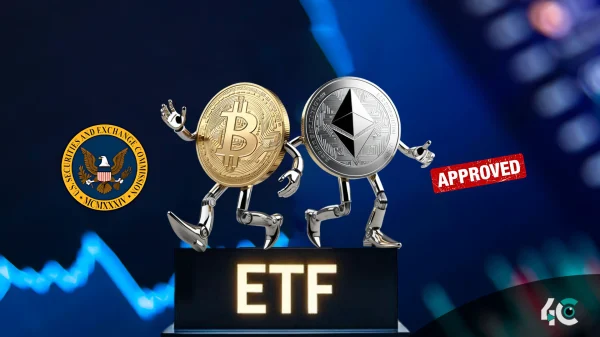Ukraine’s National Securities and Stock Market Commission (NSSMC) has proposed a taxation framework imposing a 23% tax on cryptocurrency gains converted to fiat while exempting stablecoin swaps and crypto-to-crypto transactions. This initiative aims to integrate digital assets into the national economy and align with global standards.
Ukraine advances a crypto tax framework.
Ukraine is proposing a crypto taxation framework that will impose taxes of up to 23% on a range of crypto activities. Other activities will be exempt, such as stablecoins and crypto-to-crypto transactions.
Ukraine’s NSSMC commission makes an 18% base tax proposal for the conversion of crypto to fiat or for purchases in the latest plans. Adding a 5% military tax will result in a total tax of 23%. However, crypto-to-crypto trades will likely remain tax-free, thus ensuring a minimal impact on traders’ activities.
The head of the NSSMC, Ruslan Magomedov, stressed the need for a rapid and intelligent legislative response to crypto taxation. He said the specificities of different tax situations for investors and the market would be explained in a way that does not discourage innovations while ensuring compliance.
Key Exemptions and Special Provisions
The proposal includes several notable exemptions. Stablecoins pegged to foreign currencies will either be tax-free or subject to a 5% or 9% tax. Existing law doesn’t impose any tax on foreign currency transactions. The project aims to develop a solution to use stablecoins as a common medium of exchange without imposing excessive taxes.
NSSMC suggests tax guidelines for various crypto activities aside from basic transactions.
If you mine cryptocurrency, you will have a business. However, if you are a small miner, you will get a tax-free allowance.
For staking, we’re likely to see taxes apply when staked assets are converted to fiat only.
Legislation may confirm the taxation of income from airdrops and hard forks upon receipt or sale.
To foster growth and protect ordinary investors, the proposal will include a tax-free threshold, building on the experience of other countries. The proposal also suggests another exemption for donations to charities, transfers to family members, and a longer holding period. But it’s on the wallets that need clarification on whether the benefit will be available to LOL or not for folks managing their own non-custodial wallets.
Progress Toward a Regulated Crypto Environment
Ukraine is making steady progress toward a regulated crypto environment. The President of Ukraine’s 2022 law, which effectively gave crypto a legal status within the country, led to the development of a bill for cryptocurrency regulation. Ukraine aims to build itself into a hub for digital assets and blockchain.
Ukraine’s proposed taxation framework aims to generate revenue while fostering a favorable environment for cryptocurrency. The government intends to stimulate the incorporation of digital assets into everyday financial operations by exempting stablecoins and crypto-to-crypto trades while ensuring that what is taxable is clear and manageable.
Implications for Investors and the Broader Market
Ukraine’s Crypto Ecosystem: The Beginning of 23% Tax for Cashouts and Spending While the tax may increase government revenue, the exemptions for stablecoins, swapping, and small-scale activity aim to alleviate the burden on retail investors and encourage wider usage.
“If you’re a miner, staker, or receive an airdrop, you have more flexibility. The taxes will fall during liquidations and not on the acquisition of the asset.” Such taxation of crypto assets is not new, but we are witnessing a trend around the world where states are tailoring tax plans.
As Ukraine is improving its regulation, the proposed UK Crypto Framework is a big step in creating a transparent and investor-friendly market. The regulation has positive implications for the digital economy of Ukraine and its citizens. Furthermore, approval will lead to adoption by crypto stakeholders.
Conclusion
The crypto tax framework proposed by Ukraine shows a careful thought of integrating digital assets into the country’s economic system. The government seeks to balance revenue and innovation through the taxation of cashouts and spending while exempting stablecoins and crypto-to-crypto trades. The proposal’s additional provisions for small investors and emerging activities like mining and staking demonstrate Ukraine’s commitment to building a sustainable and inclusive crypto ecosystem.
As the proposal inches toward implementation, experts will watch how this regulation plays out in crypto adoption in Ukraine and the world beyond it. If it works, the model of Ukraine can serve as a template for other countries struggling with digital asset tax.















































